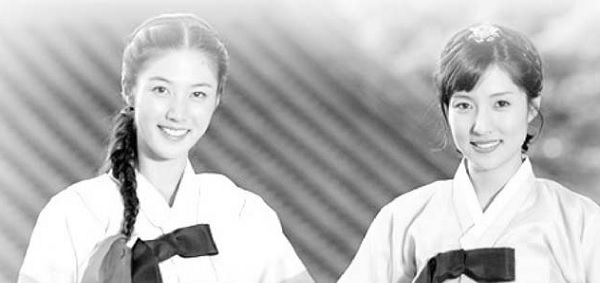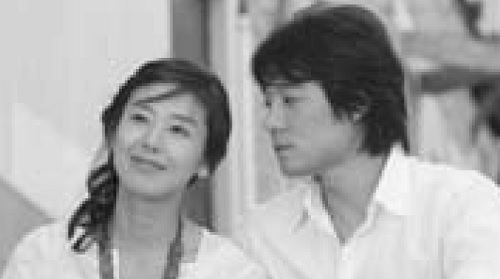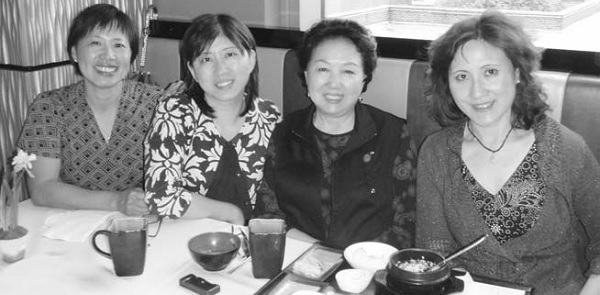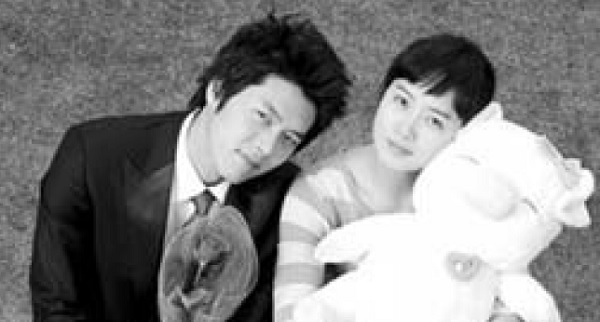Korean Love: Discussing the subtle influence of Korean dramas and Christian values

A good drama is not preachy, but fascinating; every thought and consideration, every choice made,
They all influence our values bit by bit. It turns out that you can watch Korean dramas like this!
What kind of things will four women do if they are having fun? What kind of sparks will arise when an executive of a large American company, a senior female journalist, a drama teacher and a stay-at-home mother "date" together?
In the early summer of June, on a sunny weekend morning, Gao Lili, the company executive and founder of "Godland Magazine", met with senior reporter Liao Meihui at an intersection in New Jersey. The two of them drove to New York City with the bustling traffic, with the purpose of It was to meet the famous drama teacher Shen Guanglan and Wu Xinhui, a full-time mother and cultural unit editor. The plan of this trip is to enjoy an exquisite lunch first, and then enjoy afternoon tea filled with tea and flowers.
Lili recently encountered a Korean drama. Although she is busy with work and has many things to do, she was still attracted by the romantic and affectionate plot of the Korean drama and couldn't wait to share her experience with her sisters. I wonder if it was because of the influence of Korean dramas that the lunch venue was also chosen at the newly opened Korean restaurant? The restaurant is elegantly and pleasantly decorated, and the waiter in Hanbok serves the "Palace Set Meal", which makes people feel like they are in a drama.

▲The elegant and pleasant Korean restaurant makes people feel like they are in a Korean drama.
Beautiful and interesting! Enlighten life lessons
Watching Korean dramas is often criticized by some moralists as "not doing your job properly". The implication is that you are not making progress. Some people love watching Korean dramas, but are afraid of being "misunderstood" and never mention them. Sister Li Li is not a "Bingyingmeidaizi" (having nothing to do, homophonic in Taiwanese), but she admits that she has fallen in love with it recently. "You can learn many life lessons from Korean dramas. The characters in Korean dramas are very delicate, and the descriptions of love and family are also very profound. The dialogues in the dramas are full of wisdom, and they often explain the truth of 'love is respect' without leaving any trace."
For example, "Oh my God! In the Korean drama "Please Give Me Love", the family backgrounds of the male and female protagonists are completely different. The heroine is despised and belittled by the male family and suffers from the unknown background. However, the male protagonist's performance is humorous but not derogatory, understanding but not bitter, accepting but not demanding, showing respect everywhere, and ultimately expresses the value of pure love. A good drama is not preachy, but it is fascinating; every reflection, every choice, affects our values bit by bit.

▲"Oh my God! The dialogue in the play "Give Me Love" is suitable for unmarried men and women to think and discuss.
Young people can also learn a lot from this play. The hero's words to his grandmother that he wants to marry the heroine indicate that he only wants to marry the heroine who truly loves him, and that he only wants to choose a sincere marriage rather than a combination of family background or money. Only young people who dare to take responsibility and have courage can say such words. Li Lihe, Marriage Counseling and KRC True Love Couples Camp lecturers Guo Yuanpei and Liu Yongling, both of them quoted the Korean song "Oh God!" A clip from the play "Give Me Love" is used as a teaching discussion in the education course for single men and women.
"Postmodern young people don't like to listen to preaching. We need to give them choices and let them make their own decisions. The key is the contact point. How to make young people accept our views and use God's values to instill in them. Korean dramas are an excellent medium!" Lili expressed her opinion.
Touching and beautiful, the best mood changer
Of course, Li Li watches Korean dramas not only to find teaching materials, but also to relax after her busy work. One of the strengths of Korean dramas is that they use dramatic techniques to skillfully express many unspeakable feelings. As the plot develops, it touches our hearts, prompting the audience to cherish the people and things around them more and experience the true love of "love to the depths without resentment". Please don’t think that only mothers-in-law watch Korean dramas. There are also many true-hearted men who enjoy them with their sisters at home. Although the hero is reluctant to shed tears, as the plot develops, the hero's eyes will also sparkle with tears. At this time, it is said to be an eye allergy!

▲Four elite soldiers of the Kingdom of God, from left: senior reporter Liao Meihui, stay-at-home mother Wu Xinhui, drama teacher Shen Guanglan, and company manager Gao Lili went on a "date" together, sparking a deep appreciation of Korean dramas.
Teacher Shen Guanglan, who has been in the theater industry for more than 30 years, also often uses Korean dramas to teach at KRC drama camps. She said that works that can make the audience move with the emotions of the characters in the play must be good works. Although we know that the plot development is like a modern fairy tale, we are still deeply moved by these dramas with vivid acting skills and portrayal of the inner world. Those characters with vivid personalities unfold romantic and beautiful love stories in pleasant scenes and scenes, accompanied by beautiful and moving music. We are shocked and follow the characters in the play, whether they are sad or happy. , or laugh or cry.
Teacher Shen said that literature is the study of human beings, and literature cannot be separated from writing about people. And many Korean dramas have reached the ultimate in character portrayal. The beautiful and innocent love story in "Winter Love Song" is full of twists and turns, and the aesthetic technique is used vividly. The romance in the winter snow is like a fairyland that will make you unforgettable, and the lingering love of first love will move you to your bones. The expression of love becomes silent, clean and pure, and the audience understands it. It is very consistent with the true love of selfless devotion promoted by this play.

▲"My name is Kim Sam-soon" embodies the joy of living oneself. The heroine lives an ordinary life with dignity and value; she is not beautiful, but she makes your heart skip a beat after watching it.
Ordinary and realistic, live out what you and I believe in
Many Korean dramas focus on daily life and civilians, focusing on small people, small events, and even the trivial matters of mothers-in-law and mothers. However, they are full of warmth, romance and just the right humor. Isn't this true in real life?
Teacher Shen gave an example. The play "My Name is Jin Sanshun" embodies the joy of living oneself. The heroine Sanshun has no appearance, no body, no youth (she is thirty), no education, no money, no love, no career, but she is happy and positive. So the character is real, interesting, and touching. After all, there are not many beauties in life. Most people are ordinary, but even in the ordinary, they live with dignity and value. She is not beautiful, but she makes your heart skip a beat when you look at her. Indeed, in many Korean dramas, the audience can feel the existence of family relationships and happiness, the true meaning of truth, goodness and beauty, and the essence of Christian faith contained in them.
In South Korea, the proportion of Christians is very high, and Christians are also people who live in reality. They have to work, fall in love, make money to support their parents and children, and deal with all kinds of people. Therefore, their dramas attach great importance to family, pay attention to human ethics, explore hard work, failure, and success; showing these rich and colorful real lives makes people feel like they have seen each other before. The audience thus understands the profound connotation contained in the work and touches the depths of our souls.
Of course, not all Korean dramas are great. Just like choosing a good book among many books, Korean dramas also need to be carefully selected instead of just accepting them all. Teacher Shen said that the more natural the play, the better. Nature means being close to life, and being close to life will resonate and touch people's hearts!
Carefully selected, classic dramas are easy to watch
In fact, Korean dramas have been popular in China, Hong Kong and Taiwan for many years, and good dramas are staged every year. Teacher Shen suggests that "novices in Korean appreciation" can start with the following classic Korean dramas: "Which Star Are You From", "Dae Jang Geum", "Lovers on the Snow", "Daisy", "Spring Waltz", "My Name is Kim Sam-soon" ", "This Damn Love", "Winter Sonata", "Lian Lizhi", "Look and See", "Full House", "Rondo".
Some Korean dramas are pleasing to the eye, some are humorous and romantic, some are sensational, and some are tragic... As for similar plot structures, Teacher Shen suggested that just watching one is enough, not every one. For example: after watching "Winter Sonata", you don't need to watch "Lovers in Paris" and "Lovers in Prague"; after watching "Love at Harvard", you don't need to watch "My Girl".
Lili watched "Oh God!" a while ago, which moved her deeply. Give Me Love", and her recommendation list also includes "Better Than Flowers" and "Complete Love". The former is about a family of ordinary people who have gone through life experiences such as financial pressure, domestic violence, extramarital affairs, and the mother suffering from dementia. Many incompetent and powerless characters in the play hide the essence of life wisdom. The latter tells about the dilemma of a couple whose parents objected to their marriage, and how they eventually faced the consequences of their parents becoming ill. Both plays are closely related to our real life.
The Word became flesh and penetrated social values
"Why don't we discuss Japanese dramas, Taiwanese dramas or mainland dramas, but Korean dramas?" Li Li believes that the values of Korean dramas are more stable and clear than Japanese dramas, Taiwanese dramas, and Hong Kong dramas, and they have criticized and revised many rigid traditions. For example, Koreans attach great importance to the purity of blood, but Korean dramas often inadvertently educate everyone; the most important thing is not the purity of family blood, but sincere acceptance and respect.
The contents of many Korean dramas touch on life issues such as true love and sacrifice, sin and forgiveness, kindness and compassion. It can be felt that Christianity has been integrated into society, influencing society, and transforming social values. It can be seen that Christian faith helps them see their own preciousness and self-esteem, and many screenwriters often reveal their compassion for human nature invisibly.
Shin Hye and Mi Hye are both "novices in Korean appreciation" and are eager to try watching Korean dramas. Li Li came prepared and immediately took out the computer to play the DVD. The four of them were enjoying Korean dramas with rose tea in the elegant Tea House. Looking at the affectionate dialogue between the male and female protagonists, the romantic atmosphere permeated the surroundings. Teacher Shen drank the "Rose Lover's Tea" and complained that it was too sweet! We work multiple jobs on weekdays and work hard at the jobs ordained by God. This rare date allows us to take a break and respite from our busy schedule. We not only enjoy the delicious food and tea, but also share the Lord’s grace through conversation.
Prayer is a must for Christians, but God is everywhere. He encounters us everywhere in different ways. He can speak to us even when we are relaxing or watching TV dramas. For Christians, worship should be a way of life, not just a type of gathering. So, brothers and sisters! Why not watch Korean dramas? !
There are new ways to dismantle Korean dramas
KRC Practical Writing Training Camp/Interview Camp/Editing Camp Lecturer Su Wen’an
Teacher Su Wen'an has been teaching for many years and is good at using movies and TV series as auxiliary teaching materials. The following is his exquisite experience of watching Korean dramas in order to collect teaching materials, which is worthy of reference for those who are interested in watching Korean dramas.
Korean drama features
1. Generally speaking, the outlook on love, values, and life are quite positive, healthy and positive.
2. The child actors are all very cute and engaging.
3. The male and female protagonists usually interpret their roles delicately and have first-rate acting skills. The same actor plays both the good guy and the bad guy in different dramas equally well. Especially the close-ups and inner scenes are very successful.
4. Licorice character, with superb acting skills, not only complements the protagonist, but also has interesting and lively dialogues, hiding wisdom and love. For example, the adoptive parents in "Dae Jang Geum" and several "store managers" in "Business Road".
5. There is no excessive bloody violence, and there are rarely hot sex scenes. On the contrary, there are often evocative sacrifices, the most passionate true love, and heart-stirring forgiveness.
6. There are interesting words and wisdom in the dialogues, especially in "Dae Jang Geum" and "Oh God!" "Give me love" is every word Zhuji.
7. With a background in various industries, he is very professional. For example, "Dae Jang Geum" refers to the cooking and medicine of the Joseon court in the 16th century; "Shooting the Star" refers to the entertainment industry; "Lawyer Lover" and "Love at Harvard" refer to the legal world; "Falling in Love with the Female Anchor" and "On Air", TV station; "Sunshine Lover's Dream", TV shopping channel; "Gift", construction industry; "Glass Slippers", electronic communications industry; "Business Road", the business world of North Korea in the eighteenth century; "Love Hotel", hotel industry. "The White Tower: Korean Edition", medical field.
8. The scenes are extremely beautiful, such as "Dae Jang Geum", "Love at Harvard", "Winter Sonata", "Lovers in Paris", "Pork Nursery Rhymes", "Empress Myeongseong" and so on. Seascapes, snowscapes, mountainscapes, riverscapes, campuses... often appear with very high artistic techniques.
Character archetypes (with occasional exceptions)
1. Heroine: She is as beautiful as a fairy, charming, pure, cheerful, kind, has a sweet smile, is diligent, has a strong fighting spirit, comes from a poor background, and is willing to forgive.
2. Supporting actress: beautiful, but not as good as the heroine; smart, but not as good as the heroine; because her work performance is not as good, or she and the heroine fall in love with the same man, or they are competitors in love and career, and they regard her as a thorn in the side, so He does everything possible to frame and harm the heroine; he comes from a wealthy family.
3. Male protagonist: Except for changing the heroine's "beauty" to "handsome", and changing poverty to wealth, the rest are the same as the heroine, but usually add the addition of willingness to wait for love, sacrifice, tolerance, responsibility, and integrity. Mature.
4. Supporting male role: roughly the same as the supporting female role, but the method of attacking opponents is more violent.
5. Licorice characters: Most of them are colleagues, close friends or another admirer of the heroine and the hero, who support her (him) openly or covertly.
6. Accomplice structure: The enemy of the male (female) supporting character pursues and beats his opponent because of his own interests. Including superiors, elders, senior assistants, etc.
7. Power center: Mostly the chairman of the company, and the heroine’s originally unknown grandfather or father. He regrets what he did when he was young and wants to make amends in his old age.
Usage
1. Slow-paced inner drama: The episodes are long and slow-paced. Make good use of memory fragments to enhance the inner drama. Even if the audience skips the middle episodes, they can still grasp the plot again through the flashbacks. Although the pace is slow and the plot is repetitive, the pictures are beautiful and the actors' serious performances make people continue to watch it with interest.
2. The protagonist suffers from accidental amnesia: he temporarily loses his memory due to a traffic accident or psychological trauma, and has no memory of his past relationships. Until the end of the play, the memory is restored because of someone (something).
3. Holding the wrong child, or the character in the play lived in the same orphanage, or was a childhood neighbor or playmate.
4. We were deeply in love when we were young, but due to various reasons we were unable to unite, and we were separated in different parts of the world. When we meet again many years later because of the relationship between children, sometimes we can only reminisce about the past, and sometimes the old relationship is rekindled and stirred up again.
5. Love rivals compete and go crazy for love: using various means, including misunderstanding, slander, rumors, bribery, violence, etc.
Story mode
1. The most common plot: the hero and the supporting heroine were originally lovers, but the heroine appears and strongly attracts the hero. After the heroine found out, in order to save her love, she began to boycott the heroine. But the heroine is quite forgiving and tolerant, and she is upright when resisting. In the end, her lover finally gets married, while the supporting heroine harms others and herself. Sometimes she regrets it, and sometimes she never regrets it until her death. Examples: "Glass Slipper", "Falling in Love with the Host", "Sunshine Lover's Dream", "Gift", "Stairway to Heaven" and so on.
2. Most of the films focus on the struggle and growth history of the heroine. "Business Road", "Shooting the Stars", and "Shu Nursery Rhymes" focus on the struggle history of the male protagonist, but they are not as attractive as the miserable beauties.
3. The male and female protagonists were originally sisters/brothers separated since childhood, close friends in the orphanage, or half-sisters/brothers from the same father or mother. Moreover, the supporting actress was her boss when she met the heroine, and the truth was discovered during the process of the two competing for career or love. The reasons for separation include holding the wrong child, losing a certain memory, and the biological parents deliberately concealing it. Such as "The Gift", "Glass Slipper", "Falling in Love with the Female Anchor", "The Bad Dream", "Shooting the Star", etc. In fact, the chances of the above-mentioned events happening in real life are very rare, but Korean dramas are produced in large quantities, well acted, and highly persuasive, gradually creating a "Korean drama world", just like Jin Yong's martial arts world. Therefore, in recent years, dialogues in Korean dramas often include phrases such as "This is even more incredible than the plot of a TV series" and "You have watched too many TV series."
Real life and real life provide material for Korean dramas, and Korean dramas in turn influence the clothing, hairstyles, ways of speaking, and even love views and values of the common people. As the saying goes, "Life is like a drama, and drama is like life"!
Christians vs. Korean dramas
In the minds of many Christians, Korean dramas may be equated with Japanese idol dramas, and idol dramas are equivalent to soap operas? I once heard a pastor remind Christians: "Read the Bible, not Dae Jang Geum." The pastor's unintentional joke indirectly showed that watching Korean dramas is secular and a waste of time. Doesn’t this dichotomy between black and white and simplified thinking reflect the danger of “sacred and secular dualism”?
A non-Christian mother sent her children to church for Sunday school. During her spare time, she was chatting with Xiaoying, a friend who has been a believer for many years. Somehow, the topic suddenly turned to Korean dramas. A week later, the church leader talked to Xiaoying. The key point was that Xiaoying should seize the opportunity to preach the gospel to non-Christians instead of talking about Korean dramas.
Korean dramas are popular all over the world because they evoke the forgotten passion and sincerity, innocence and kindness in the adult world. I have to admit that the plots in some Korean dramas really force Christians to think about a question: In real life, can we really laugh with happy people and cry with sad people?
Deliver the essence of gospel drama! KRC Drama Camp Lecturer/Shen Guanglan
The church can be said to be a microcosm of society; brothers and sisters come from all over the world, work in different professions, and have different backgrounds. Because of Jesus, we believe in the same faith and use different gifts to advance the gospel together. But this does not mean that Christians do not eat the smoke and fire of the world, do not understand the living environment, and do not interact with others; nor can they close themselves in a vacuum, enjoy themselves, and be spiritual only.
Jesus’ actions set a good example for us: He was friendly and humorous, and lived among the crowd; He attended wedding banquets, healed the sick and saved people; He refuted slander, praised and encouraged; He blessed children and rewarded disciples; He drove out all those doing business in the temple. People learn the true meaning of faith from metaphors. He is God and a living man.
When we imitate Jesus, we must strive to live out the Lord's likeness in everything. Like Him, we must go deep into the crowd, care about everything, and make friends. Only in this way can we compare our hearts with our hearts and spread the gospel! In fact, everyone's life experience can be written into at least one or more novels, which are no less exciting than Korean dramas. With careful planning, you can witness the wisdom and guidance of the gods.
The fear is that Christians are stuck in a cocoon and are stuck in their own ways, unable to touch new things with an open heart; "love" has become a noun, not a verb. The worst thing is that reading the Bible and praying are just to stay away from the world, to be indifferent to the things around you, to be satisfied with your own salvation, to think that you are extremely holy and to please the Lord. As everyone knows, the Bible is always ahead of the times! Ephesians 2:8 says: “For by grace you have been saved through faith; and this not from yourselves, it is the gift of God.” In fact, the Lord Jesus has given us full freedom to We each “glorify God and benefit others” according to our gifts.
In the past two years, the brothers and sisters who have participated in the KRC drama camp are all willing to commit themselves to the path of drama ministry, and are eager to write gospel plays that shock people's hearts. Therefore, what is before us is to break free from the shackles of bondage, draw wisdom from Jesus, and use real and non-preaching methods, living people, and touching things to preach the best gospel so that people can be moved spiritually.
The movie "Precious Vow" is an excellent gospel drama filmed by Hollywood, based on the true story of the original book "Keeping a Lifetime Promise". The director is full of passion, bringing the audience into the play, experiencing the inner struggle with the characters, and trying his best to keep the promise of marriage made before God. This kind of gospel drama touches people's hearts. Just like the carefully portrayed characters in many Korean dramas, it touches the depths of the soul and benefits people for life. I hope all Chinese Christians who love drama can work together.
